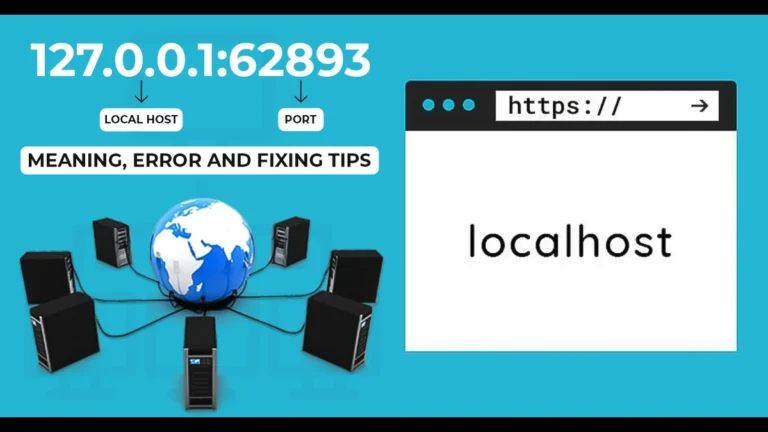Regarding computer networking, IP addresses, and ports are crucial in facilitating device communication. One such IP address and port combination that has garnered significant attention is 127.0.0.1:62893. This article will explore the networking world and the mysteries surrounding this enigmatic combination.
What is 127.0.0.1?
127.0.0.1 is a unique IP address known as the loopback address. It is a reserved IP address that is used to identify the device itself rather than a remote host. In other words, when a device sends a request to 127.0.0.1, it communicates with itself. This IP address is used for testing and troubleshooting purposes, allowing developers and network administrators to verify the functionality of their applications and network configurations without relying on external connections.
History of the Loopback Address
The loopback address has its roots in the early days of computer networking. In the 1970s, the Internet Protocol (IP) was first developed, and the need for a unique address to identify the local host arose. The Internet Engineering Task Force (IETF) reserved the IP address 127.0.0.1 for this purpose, and it has since become an integral part of computer networking.
What is Port 62893?
Ports are used to identify specific processes or services running on a device. Port 62893 is a dynamically assigned port, which means it is not a well-known port assigned by the Internet Assigned Numbers Authority (IANA). Instead, it is a private port that various applications and services use to establish connections. Different software applications, messaging platforms, online gaming servers, and file-sharing services commonly use port 62893.
The Significance of 127.0.0.1:62893
When combined, 127.0.0.1:62893 represents a local endpoint that allows applications to communicate with themselves. This combination is often used for debugging, enabling developers to test their applications’ functionality without relying on external connections. For instance, a developer working on a messaging app might use 127.0.0.1:62893 to test the app’s messaging functionality without actually sending messages over the internet.
Security Implications
As with any network endpoint, 127.0.0.1:62893 presents security risks if not properly configured. Since this endpoint is exposed to the local network, a malicious actor could exploit it to gain unauthorized access to the device or application. To mitigate these risks, it is essential to ensure proper firewall rules are in place and that access to this endpoint is restricted to trusted sources only.
Real-World Applications
127.0.0.1:62893 has numerous real-world applications across various industries. For instance, in the field of online gaming, this endpoint is used by game servers to facilitate communication between players. In file sharing, 127.0.0.1:62893 is used by peer-to-peer file-sharing applications to establish connections between users.
Use Cases
Debugging and Testing
127.0.0.1:62893 is widely used for debugging and testing purposes. Developers can use this endpoint to test their applications’ functionality without relying on external connections. This allows them to identify and fix issues before deploying their applications to production environments.
Troubleshooting Common Issues
When working with 127.0.0.1:62893, developers and network administrators may encounter various issues. Here are some common problems and their solutions:
Issue 1: Connection Refused
If you encounter a “connection refused” error when connecting to 127.0.0.1:62893, it may indicate that the application or service is not listening on that port. Ensure the application or service is configured correctly and running to resolve this issue.
Issue 2: Timeout Errors
Timeout errors occur when the device or application cannot connect to 127.0.0.1:62893 within a specified time frame. To resolve this issue, check the network configuration and ensure that the device is correctly connected to the local network.
Issue 3: Security Software Interference
Security software, such as firewalls or antivirus programs, may interfere with connections to 127.0.0.1:62893. Configure the security software to allow connections to this endpoint or temporarily resolve this issue by turning it off.
Best Practices
When working with 127.0.0.1:62893, it is essential to follow best practices to ensure security and efficiency:
Conclusion
In conclusion, 127.0.0.1:62893 is a powerful tool in computer networking. By understanding its Significance, applications, and potential security risks, developers, network administrators, and security professionals can harness its power to build efficient and secure applications.


